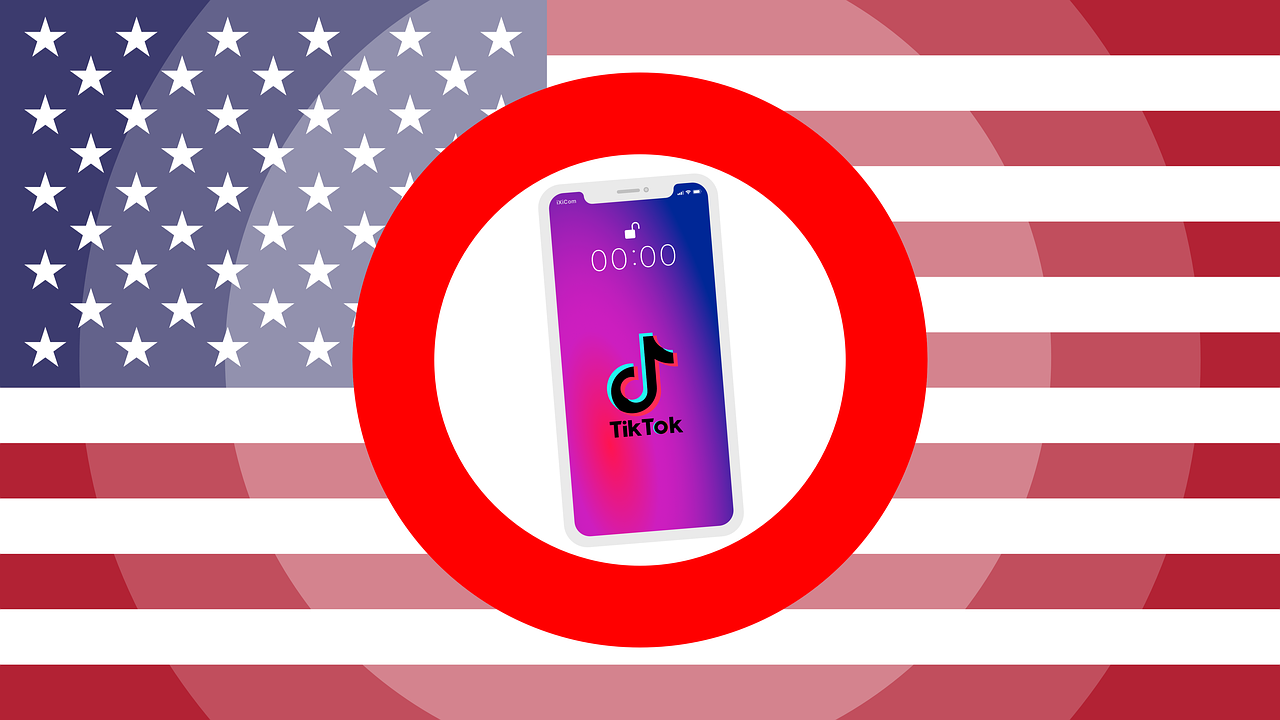Montana Becomes First U.S. State to Ban TikTok, Sparking Controversy and Uncertainty

May 24, 2023
Montana Governor Greg Gianforte made headlines by signing a bill that officially prohibits the use of TikTok in the state. The decision to ban the popular social media app stems from concerns over data privacy and the potential influence of the Chinese Communist Party.
Montana’s move marks a significant step in the ongoing efforts to restrict TikTok, but it is anticipated to face legal challenges in the coming months.
Background and Context
TikTok, owned by the China-based company ByteDance, has faced increasing scrutiny in recent years due to its Chinese ties and data security concerns. U.S. officials have expressed worries that the Chinese government could gain access to personal information of American TikTok users for espionage purposes.
However, no concrete evidence has been presented to support these claims. In response to mounting concerns, several federal lawmakers have called for a nationwide ban on TikTok.
The Ban and Potential Consequences
Montana’s recently enacted bill specifically targets TikTok, rendering its operation within the state boundaries illegal. The legislation, set to take effect in January, imposes potential fines of up to $10,000 per day for violators, including app stores that host the TikTok application.
However, this ban has drawn criticism from various stakeholders, such as technology trade group NetChoice and the American Civil Liberties Union (ACLU), who argue that it infringes upon individuals’ free speech rights.
Response from TikTok and Users
In response to the ban, TikTok issued a statement affirming its commitment to defending the rights of its users in Montana. The company reassured Montanans that they could continue to use the platform for self-expression, livelihoods, and community engagement, despite the ban.
Meanwhile, TikTok users in Montana, including small business owners and content creators, find themselves grappling with uncertainty regarding the future of their businesses and online presence.
National and Global Implications
Montana’s ban on TikTok sets a precedent as the first complete state-level ban of the app in the United States. This action raises concerns that other states or even the federal government might follow suit, potentially impacting TikTok users and businesses nationwide. The controversy surrounding TikTok reflects broader discussions about data privacy, national security, and the influence of foreign-owned platforms on American users.
Debate Over Data Privacy and National Security
The ban imposed by Montana reflects the ongoing debate surrounding TikTok’s ties to China and concerns over data security. While some argue that the ban is necessary to protect national security interests, others contend that it infringes upon individuals’ rights to free speech and access to online platforms. Finding the right balance between protecting data privacy and ensuring national security while upholding constitutional principles remains a challenge.
Impact on Montana’s TikTok Community
The ban has left TikTok users in Montana, including small business owners and content creators, in a state of uncertainty. Many rely on TikTok as a platform to connect with customers, build their businesses, and express themselves creatively. With the ban looming, these individuals must now explore alternative platforms and strategies to sustain their online presence and livelihoods.
Enforceability and Legal Challenges
Questions arise regarding the enforceability of the ban and the potential legal challenges it may face. Critics argue that the ban may infringe upon First Amendment rights, leading to lawsuits against the state. Legal and technology experts also raise concerns about how the law can effectively be enforced, given the digital nature of TikTok and its widespread availability.
Broader Implications for Social Media and Online Platforms
The ban on TikTok in Montana reflects wider concerns about the role of social media platforms and foreign-owned apps in American society. It serves as a reminder of the ongoing need to evaluate the risks associated with data privacy, user trust, and national security in the digital age. The controversy surrounding TikTok raises important questions about the responsibility of social media companies to protect user data and ensure the integrity of their platforms.
The ban in Montana also highlights the challenges of regulating online platforms in an interconnected world. With the global nature of the internet, enforcing bans on specific apps becomes increasingly complex. TikTok, like other social media platforms, operates across international borders, making it difficult for individual states to fully control its usage.
Furthermore, the ban raises concerns about potential retaliation or reciprocal actions from other countries. If more states or even the federal government were to follow Montana’s lead and ban TikTok, it could set off a chain reaction, leading to restrictions on American platforms abroad. This could have implications for freedom of expression, international trade, and global digital cooperation.
The controversy surrounding TikTok is not limited to its ties with China but extends to broader discussions about the impact of social media on society. There are concerns about the addictive nature of these platforms, their effects on mental health, and the spread of disinformation. While these issues are not unique to TikTok, its ban highlights the need for a comprehensive and nuanced approach to regulating social media platforms.
Balancing Privacy and Free Speech: TikTok’s Defense
In response to the ban, TikTok has been actively defending its platform and asserting its commitment to user privacy. The company has implemented measures to safeguard user data and has established transparency initiatives to address concerns about content moderation and data security. However, the ban in Montana signals a need for TikTok and other social media platforms to proactively address these concerns and strengthen user trust.
As the debate around TikTok continues, it underscores the importance of a balanced approach that addresses legitimate security concerns while respecting individuals’ rights to free speech and access to online platforms. Government entities, industry stakeholders, and users themselves should collaborate to develop effective regulations that protect privacy, national security, and the open exchange of ideas.
Conclusion
Montana’s ban on TikTok sets a precedent in the United States and sparks a broader debate about the role of social media platforms, data privacy, and national security. The ban raises questions about the enforceability of such measures and the potential impact on TikTok users and businesses in Montana.
It also underscores the need for comprehensive regulations that strike a balance between protecting national security and preserving individuals’ rights in the digital age. As the discussion around TikTok unfolds, it will likely continue to shape the future of social media and online platform governance both in the United States and globally.








